Living with the many faces of reality
reflecting on the hopes and perils of community after accidentally living in a "cult"
It is challenging to recognize the many forms of reality in this world and make peace with them. They are choices of belief systems –– social and psychological constructs that help us grasp our place in a web of relationships –– that evolve as we go through different phases of life with refreshed perspectives.
On December 13, I embarked on my trip to a permaculture farm on the coast of Puerto Jiménez, Costa Rica. I had hoped to explore an alternative reality away from what seemed so dominant in our society: sad and competitive people, the never-ending monotonous work-study life, and disappointments with no solution in sight. The farm, Finca Morpho (FM), hailed a vague yet idyllic statement: …we aim to create a container that is designed to mimic nature and aims to create an organized community structure for the purpose of transition which helps guide us to true sustainability in social-economic systems. In hindsight, this bulletin, pieced together with plastic words, was all foam and no honesty. Yet from merely reading the online description and hearing others’ recommendations, I imagined Finca Morpho as a community-building Bootcamp that could offer me insights on how to live alongside one another in a divisive world and to more definitively let go of what no longer serves my values. However, my searching –– dismayed and relieved as I was to learn –– was a detour, revealing to me that everything I needed, I already had: the best kind of community already existed right where I lived, with people I had chosen to know, trust, and love.
Selling What You Don’t Know
Situated on a beach near the Corcovado National Park, Finca Morpho is owned and invested by Americans. Right away, my impressions of this property leave me uncertain of what I’d gotten myself into. All the “Morphians” are foreigners. The only Costa Ricans here are contract workers who help with property construction. My IR-trained brain can’t help but repel such reality right off the bat. (After I left FM, I stayed in Jiménez for one night. At a bar, in a conversation with two locals, they laughed so hard after hearing about my visit to FM. “Estan locos!! Those people are crazy!!”)
The promise of a horizontally structured community, where people from all over the world come to live together, collapses quickly as I observe the daily interactions on the farm. The hierarchy is apparent, just like the outside world. People live in different accommodations: some in private cabins, some in shared dorms, and the founder in a private suite with a personal kitchen. Every week, each person picks up two kitchen shifts to cook for the entire farm. Those with vehicles can get to town easily and purchase all kinds of snacks and fresh ingredients. Those without only have one option: to eat what’s cooked. When in a communal space of vulnerability, some share with honesty and openness, while others (including the founders) mope around with insincerity.
Despite its modest and eco-conscious lifestyle (compost toilets and minimal use of electricity), at the end of the day, Finca Morpho is a for-profit business that does not deliver what it markets. Visitors pay to stay here with additional volunteer commitment to “experience life.” In this “regenerative education, experimental permaculture intentional community,” the founders on-site are stoned 90% of the time, babble sentences that don’t logically follow and tell me that the reason I feel sad is due to the thunders in the troposphere vibrating at a frequency that does not match my own while I am just homesick and worried about my family amidst COVID. (“You can stay here with people who actually care about you,” the founder said to me on the third day we met, after I mentioned to him I might shorten my stay with FM. )
If FM cannot offer anything sophisticated and beneficial for the local ecology, they are simply capitalizing on space in a foreign country under the excuse of “building communities.” Unfortunately, this type of business model is commonly operated and worshipped by “hippies,” especially in the biodiverse tropics, where the energy of the moon, stars, tidal waves, and coconuts align. Since I’ve already booked my stay, I want to at least spend my time learning about this place critically and challenge myself to reflect on my own assumptions.
Permaculture refers to “sustainable and self-sufficient agricultural ecosystems.” However, the only things they grow are bananas, coconuts, and some herbs. The rest they buy from grocers thirteen kilometers away in town. Ironically, bananas and coconuts are native plants that already grow onsite. One day, a few people invited me to harvest coconuts with them. To my dismay, we drove to neighboring properties and emptied other people’s coconut trees. Before we left, I caught sight of Freedom (a dude living at FM and yes, he tells me that his name is Freedom) uprooting a coconut sprout from the ground. “Don’t be so greedy.” I shook my head at him. “It’ll grow better on our property. They have too many anyway.”
One might wonder: what do people do all day on the “farm?” Most of them heave barrows of cement and sand around the property to work on small construction projects for the yoga and meditation retreats –– to generate more revenue streams. They also spend a lot of time stacking rocks –– being “zen” for hours and days on end. My biggest problem with FM’s leadership lies in its inconsistency and failure to deliver what it promises. If one wants to learn about permaculture, they would be better off visiting a place with certified science and ethics; if one wants to experience mindful living, a Buddhist temple or monastery, where monks have spent their entire lives practicing and living out their philosophies, would be much more helpful than hippies that refuse to grow up or shower or shave. The problem is that too many of us think we are ready for mentoring and full of wisdom while in reality, what we really need is to ground ourselves with humility and self-awareness.
In summary, Finca Morpho is a for-profit “farm” that does not grow produce, thus it shouldn’t use marketing to sound more self-reliant than it is.
The Trash Savior Complex
One of the (very few) pillar activities at Finca Morpho is Trash Tuesday, where everyone on the farm spends an hour per week dealing with their garbage. The farm labels itself “regenerative” and “no waste.” But when I arrived at their landfill –– I mean their “Resource Center” –– I was appalled to see how much garbage they were caching under a giant hut. Despite all the composting efforts (which is very attainable for a tropical farm), FM of around 15 people still managed to collect over two three-door garages worth of solid trash. Refusing to take out the garbage does not mean being zero-waste. So to “face” our waste, we sort through soft and hard plastics, categorize them, and bag them away.
Granted, I find sifting small pieces of garbage deeply humbling and reflective. Facing the garbage we produce is not an easy thing. I’ve noticed the distance of how long trash could travel: containers for BBQ sauce from the US and maple syrup from Canada end up in a pile of hard plastics on a rural farm in Costa Rica. Our trash stays behind for a very long time even after we disappear from a place. Michael Pollan says weeds are us. Trash is us, too.
But what deserves criticism is the romanticization of trash. Due to the founders’ deep resistance to technology (not that resistant because they install private wifi in their cabins), the farm operates a wooden, ancient-looking machine that takes eight people and half an hour to operate to halve a bag of soft plastics in size. (A moment of math: one hour of “confronting garbage” yields two plastic blocks per week –– impressive productivity for plastic compression.) “We are working to get these plastic blocks certified as construction material.” J, FM’s co-founder, looks at me wide-eyed with politician-level confidence, as I stare at the flimsy bloc of Frankenstein tied together by four strings, racking my brain to picture a house that is not hazardous. I gaze up, on the ceiling of the Resource Center, signs made of scrap wood and plastics scream in faded color paint: follow your dreams.
To Judge, or to Understand?
When strangers leave their respective homes, families, and daily obligations to travel hundreds or thousands of miles to be in a place, surrounded by other strangers, for months and years, are they genuinely cultivating communities? Following my first impression of Finca Morpho, one question may be: what lures people here –– this primitive, “exotic” jungle off the grid from modernity?
Being here allows a sense of freedom through avoidance, however deceptive. The motivation of choosing to live here is escapism. But this temporary gratification from self-serving activities will always be an illusion. Meaning and fulfillment only arise when we connect ourselves to causes greater than us and engage with them in an active way.
Often, the crazier people seem, the more compassion they may need. Unfortunate actions may well be the results of one’s coalescing pain and anxiety. From my days of being here, talking to, and observing the people who choose to live this way, it is jarringly apparent how they self-identify as pariahs of our society and reject the laws and customs (anti- all vaccines… just to name one). It is unfortunate that people are put in situations where escapism may feel necessary in the first place, yet I’m learning more and more that running away never solves the problem. Besides, confronting problems does not mean we have to sacrifice or compromise single-sidely. Definitively cutting ties and moving on are also ways of problem-solving, but it’s important to examine the issue with generosity first. Things often require more sympathy and understanding than we think.
Even after escaping from their “normal” lives and problems, these ex-pats are still being exploited by masters of deceptive marketing. It is those who take advantage of people who need help that I have issues with. In previous drafts of this essay, I judged the individuals harshly for their anti-vaccine conspiracy theories, pseudo-science-turned-doctor convictions, drug abuses, pyramid-scheme businesses, and selfishness in leaving their young kids at home with a single mother in order for oneself to live on this farm. Yet like all of us, they are just complex and hurt in their own ways. It’s the action of capitalizing on people’s trauma that deserves condemnation.
On Community
Thankfully, a hippie farm is not the reality of our world. People can escape their typical milieu to be in this jungle, practicing community values and self-care, but we all have to put down our roots someday. Home is the only place that matters, and we are the only ones who can make it better.


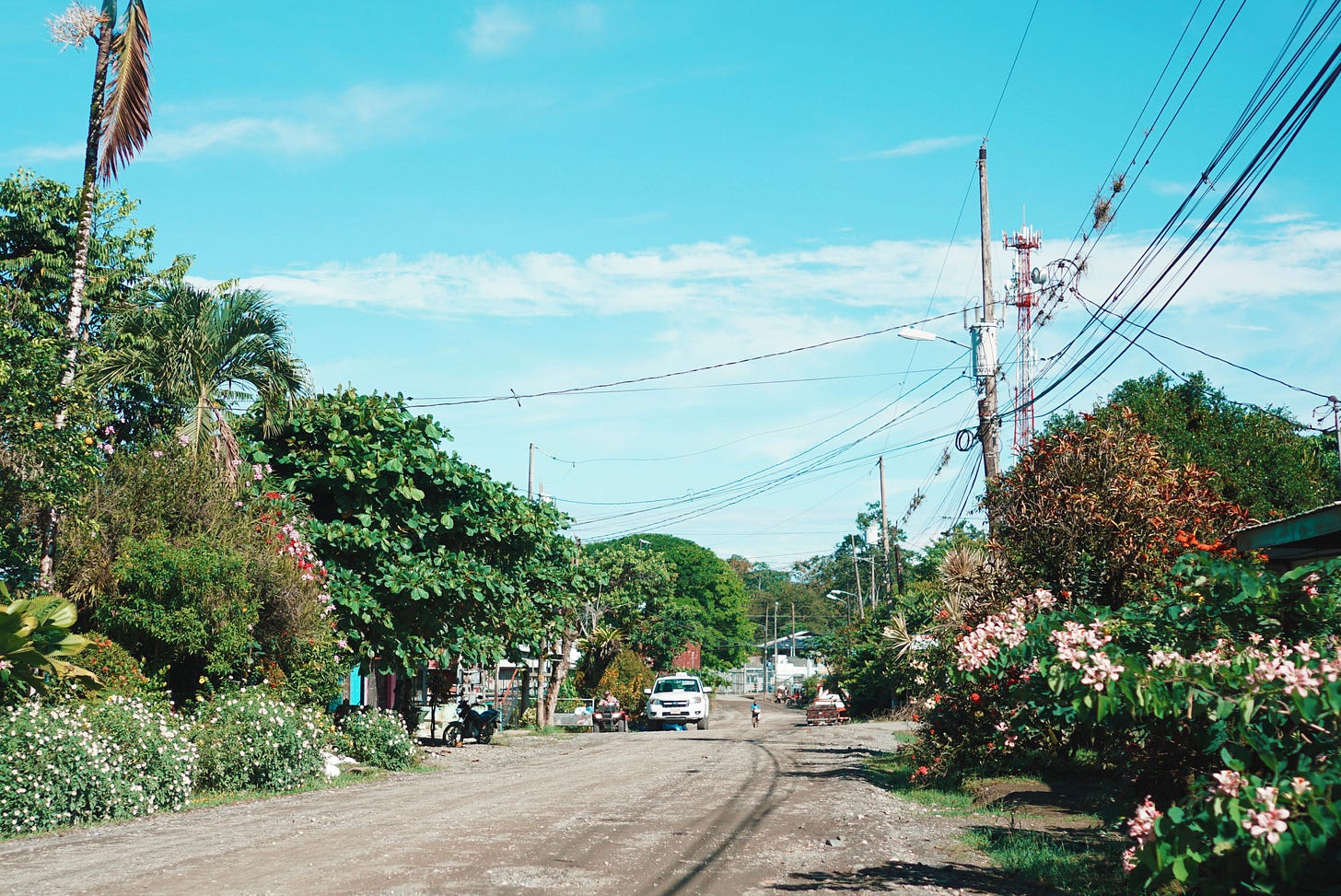
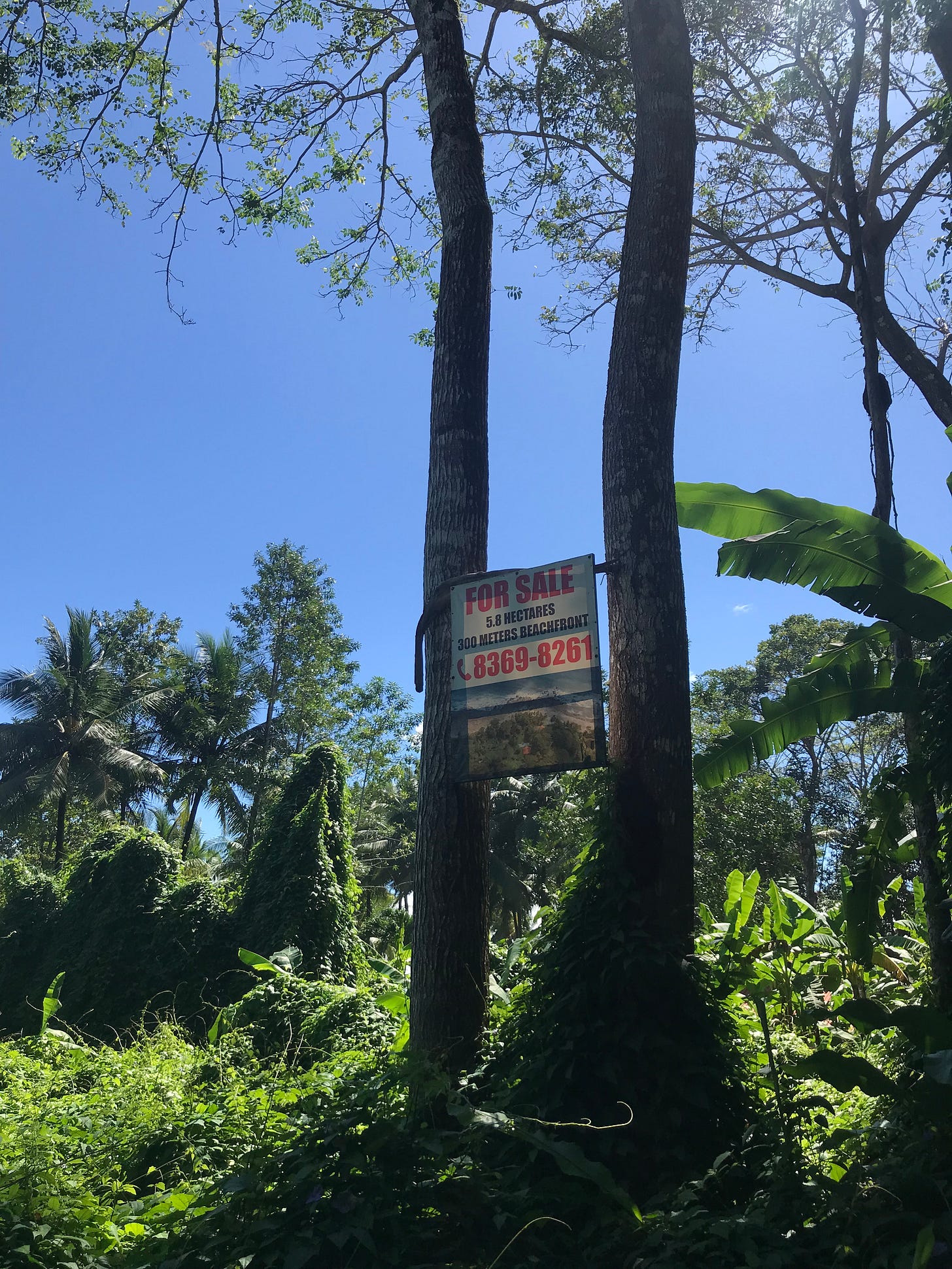
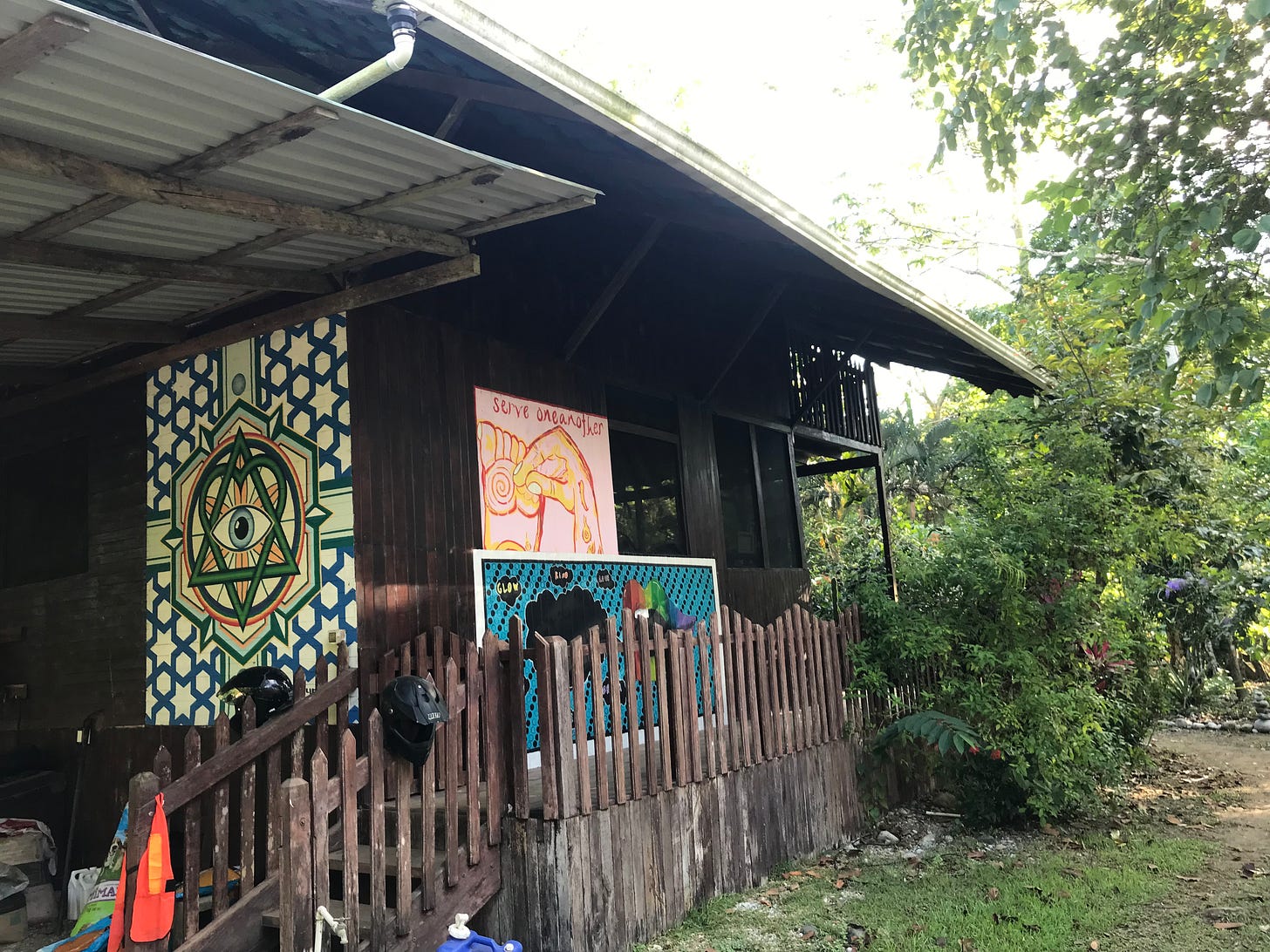
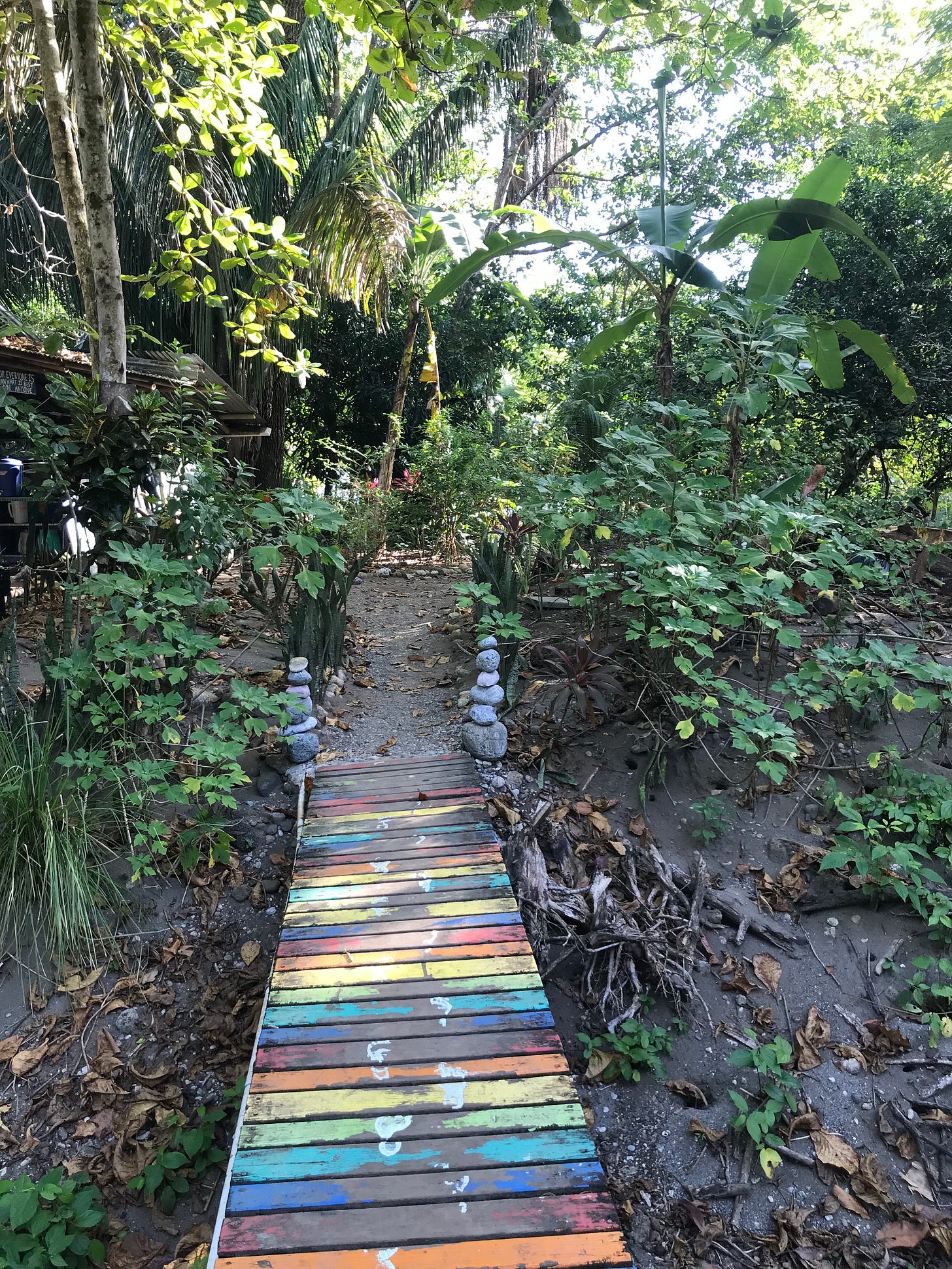
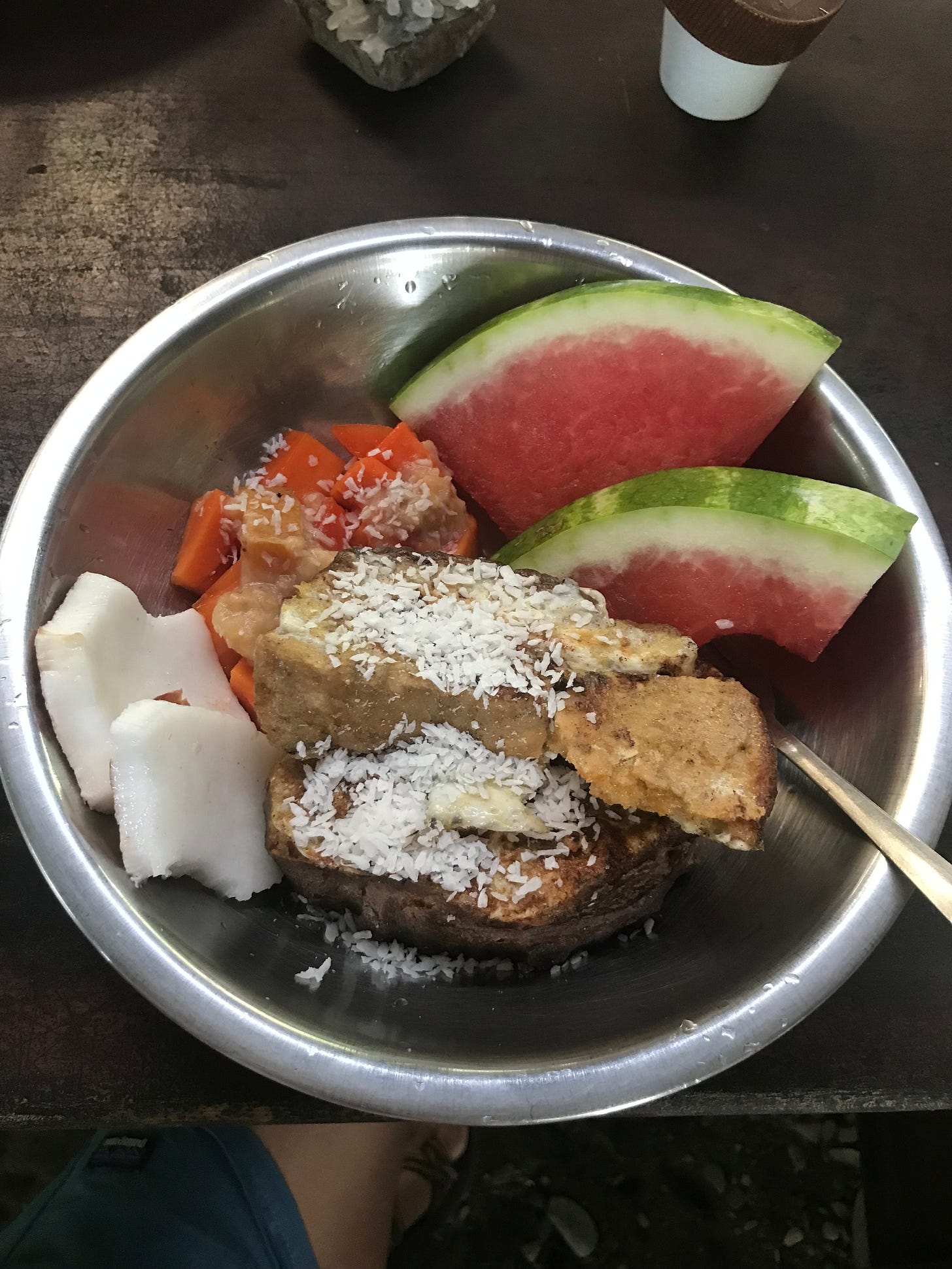
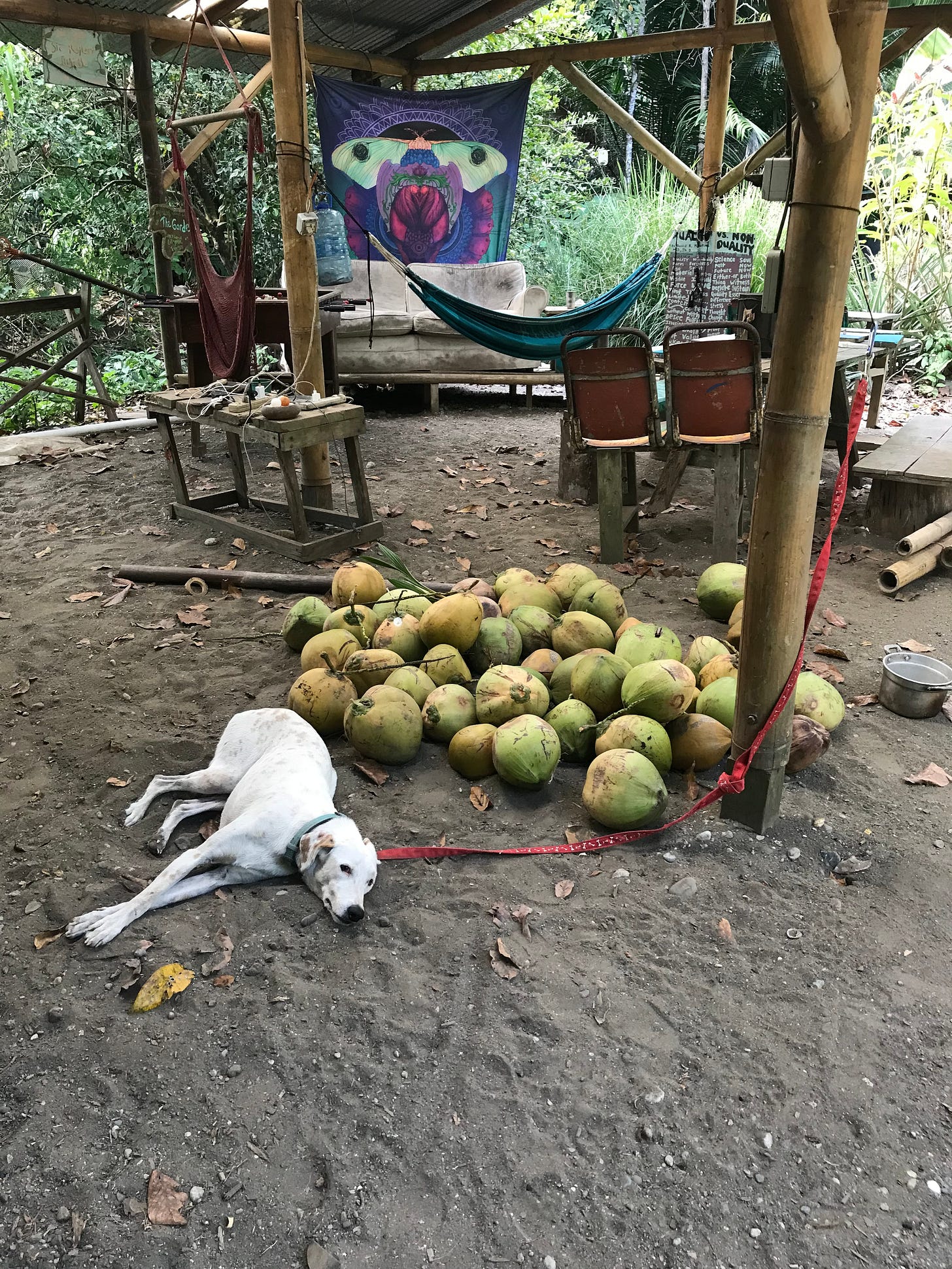
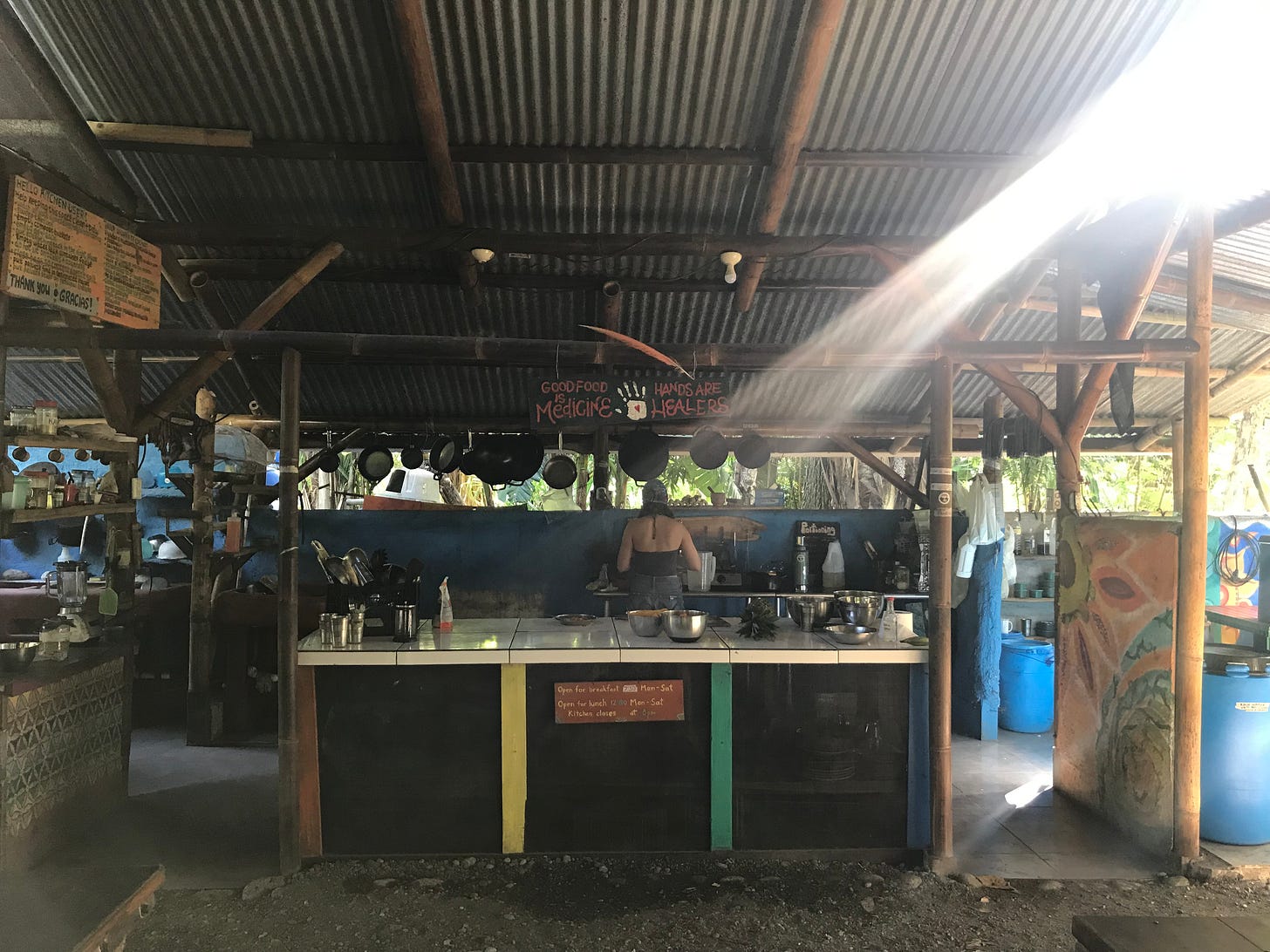
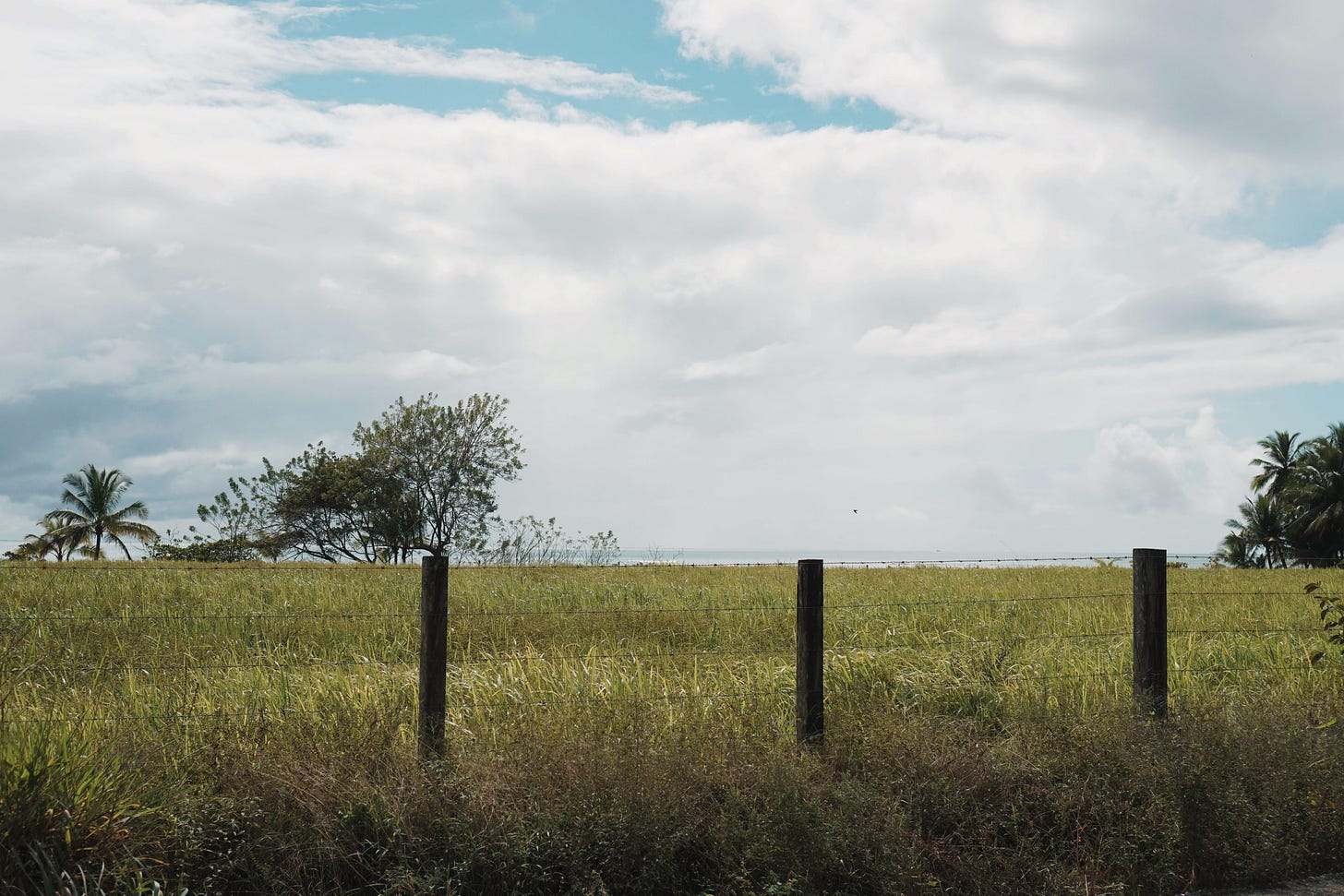
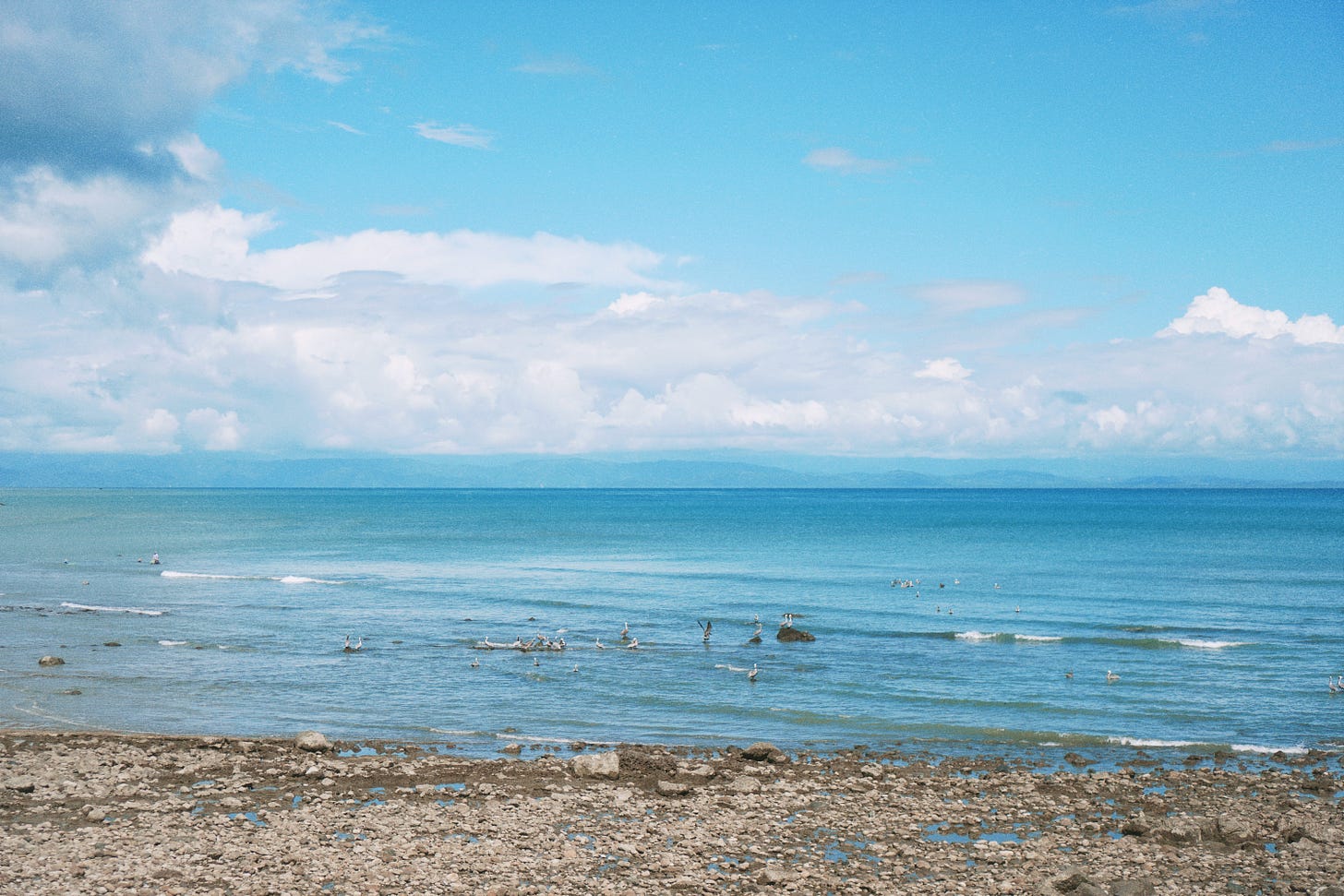
Hi, Man! Thank you for this deeply-thoughtful response to, well - not the trip you imagined! Though it was not the idealized version of community you wanted, it seems that you have been able to translate a lot of your thoughts and emotions into something meaningful (A sign of a great artist!)... I felt vigor so much in your writing. A couple of sentiments that stuck with me: "Meaning and fulfillment only arise when we connect ourselves to causes greater than us and engage with them in an active way." & "It’s the action of capitalizing on people’s trauma that deserves condemnation and judgment." Thank you for these well-balanced reflections.
Thank you for sharing this experience with us and writing critically on what you saw and how you felt. There are so many ways to lead meaningful lives in this world, which I think is the lesson I take away from this piece. Sounds like you had a really challenging experience and I applaud you for experiencing it and writing your thoughts on it.